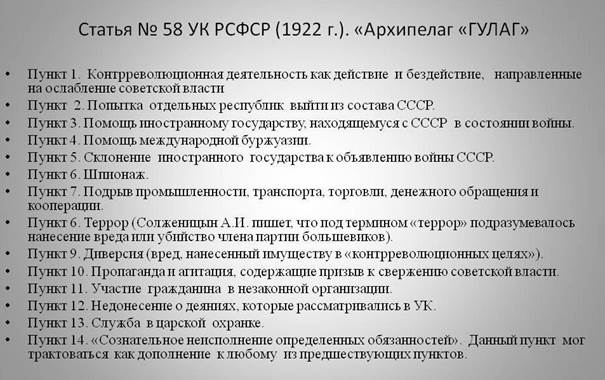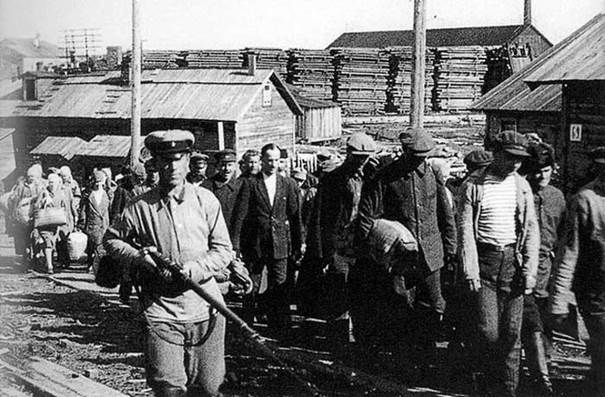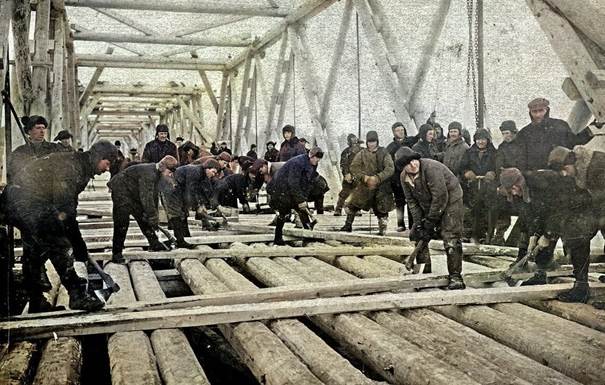For which Stalin could send his people to the Gulag or exile him to Siberia
It is not an easy topic, because when it is discussed, it is no longer based on facts, but on emotions. Or, to be more precise, on his attitude to communism and Stalin. Supporters of Iosif Vissarionovich say that the repressions were not so terrible. Yes, “dissidents” were sent to camps, shot, especially in the late 1930s, and yes, entire peoples were resettled: Tatars, Armenians, Chechens, etc.

Stalin’s opponents say and write that everything was very bad.
It seems that the golden mean should be adhered to. There is no denying that repression has taken place. But we should not exaggerate too much, pointing out that innocent people were brought to justice. Yes, there were denunciations, cases were fabricated. But it was not everywhere and without exception.
What was it possible to get into the camp for?
58th
There was such an article in the Criminal Code of the RSFSR. It’s quite voluminous. It makes sense to disassemble it.

58-1. Counter-revolutionary activity was deciphered:
- actions aimed at overthrowing or undermining the activities of councils and other power structures;
- the weakening of the external security of the USSR and the main gains of the Revolution;
- actions detrimental to the military power of the Soviet Union;
- violation or attempted violation of territorial integrity;
- espionage;
- fleeing abroad.

With the last points, everything is more or less clear. The first ones are vague. What, for example, are “actions aimed at weakening the external security of the USSR”? Wonder. There is no transcript. Everything, as they say, is left to the discretion of the court. More precisely, the investigative bodies.
You could get into the camp for a careless word against the authorities, for a joke, for an inappropriate joke, for a hint of disagreement with the party’s policy.
Therefore, the political jokes that the people made up were told in the kitchen in the circle of trusted people.
For treason, according to Article 58-1a, they were sentenced to death, or sent to camps for 10 years with confiscation of property.

They were punished under Article 58 for: espionage, anti-Soviet agitation, rebellion, sabotage.
Interesting points:
- aid to the international bourgeoisie;
- contacts with a foreign state for counter-revolutionary purposes.
Any relationship with foreigners could be subsumed under these clauses. Foreign belongings could become the basis for a serious inspection. However, “our people” in those days almost never left the USSR. Therefore, the points are of interest to modern people – Russians who now live in the Russian Federation can go on vacation to Turkey, talk there with a German or an Italian. And there will be nothing for it.
Consequences

As for the executions, everything is clear with them. There is only one consequence. With imprisonment in the camp, the story was not the most pleasant either. If a criminal could survive 10 years, it wasn’t the end of it. There were restrictions related to employment. In short, the “political” ones were entrusted with unskilled work with a small salary. Such people were not allowed to settle in big cities. They were deported “beyond the 101st kilometer” and were not allowed into the metropolises.
There was a period when relatives of the “political” were also seen as enemies. But then Stalin declared that “the son is not responsible for the father.” That was reasonable.
Thus, answering the question of why a Soviet person could end up in the Gulag or in Siberia, it is necessary to say: by accident, by malicious intent on the part or for actions that he committed, which were directly prohibited by Article 58.
